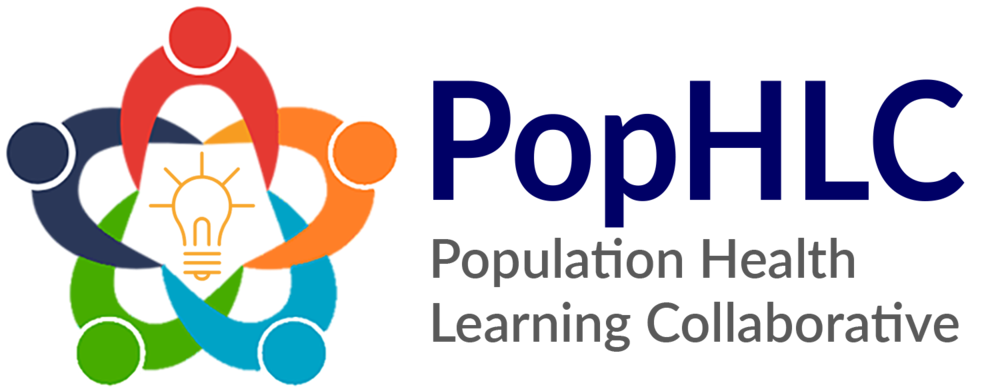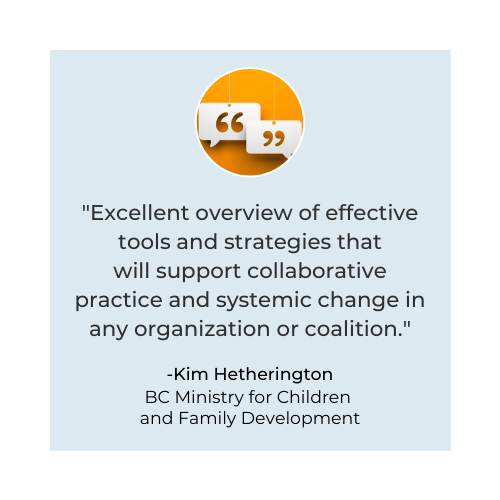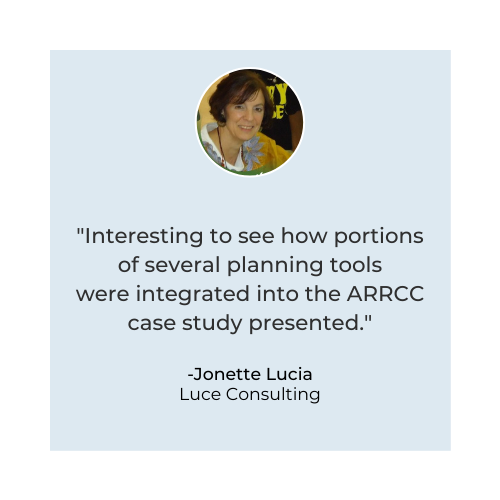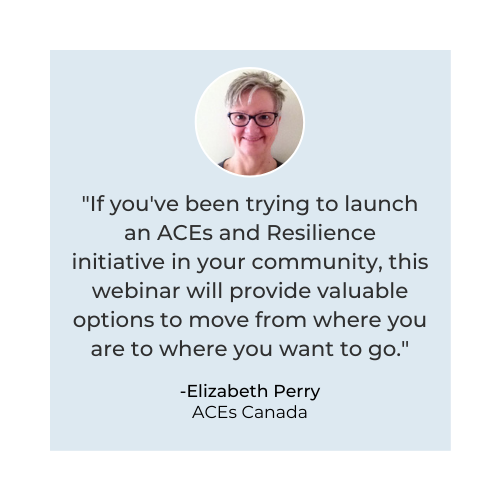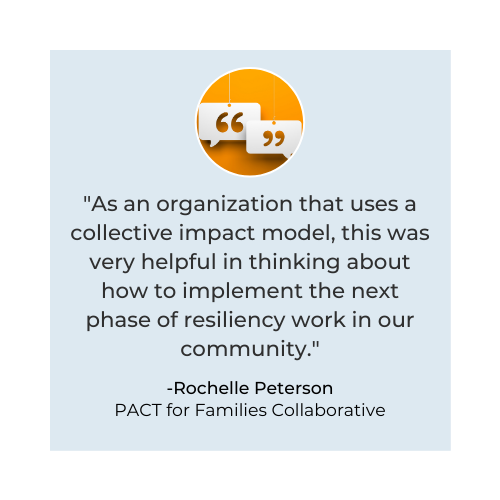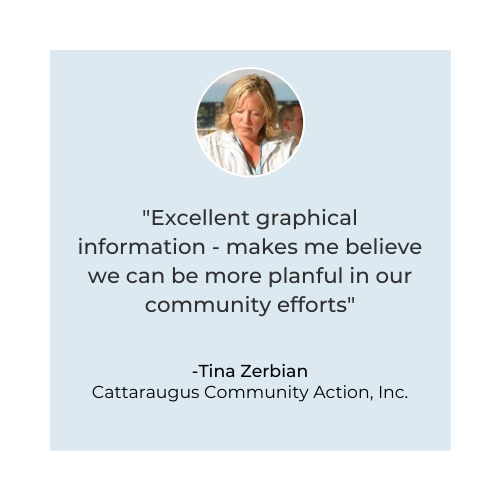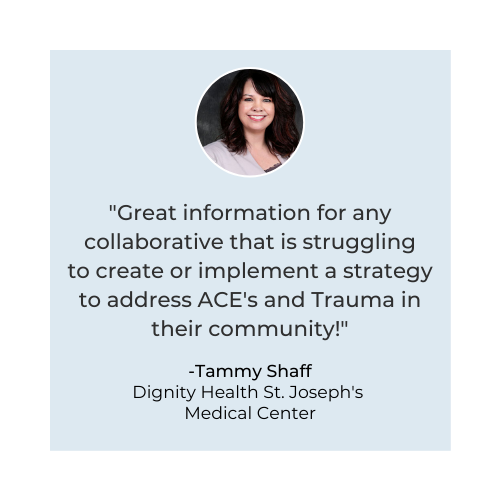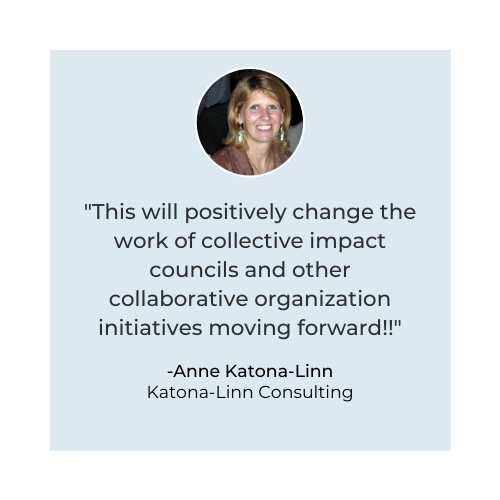Advancing Your Community’s ACEs & Resilience Strategy
(Case Studies and Upcoming Opportunities)
This webinar will focus on how two regions built on the pre-launch program for the ACEs & Resilience Resource Commons for Communities (ARRCC) to advance their regional strategies to transform the family justice system as part of a larger ACEs and Resilience strategy. The Reforming the Family Justice System coalition in Alberta and the Access to Justice coalition in British Columbia both are focusing on leveraging brain science to bring about trauma-informed system changes in their provinces. The pre-launch program provided training and coaching about powerful collective impact techniques and approaches to strategy management, and it engaged the participants in refining a strategy map template and building the open-source, wiki-based ARRCC. The webinar will share about how Jane and Diana are leveraging the techniques they learned in a 6-month group coaching program on developing and implementing collaborative community strategies.
Participants will learn about the ARRCC, the wiki-based resource sharing tool, and strategy map template that was developed during the program that Jane and Diane participated in. Participants will learn how to access the free, open-source ARRCC and about a new 6-month group coaching program to accelerate their ACEs and Resilience work.
Speakers
Jane Morley QC is the Strategic Coordinator for Access to Justice BC - https://accesstojusticebc.ca. Access to Justice BC, led by the Chief Justice of British Columbia Canada, is a network of individuals and organizations committed to improving access to civil and family justice through action that is user-centered, collaborative, experimental, and evidence-based. Access to Justice BC has recently committed to leading a cross-sector Collaborative to transform the family justice system by focusing on family well-being. The Collaborative will use a strategy mapping approach to align individuals and organizations, both within and beyond the justice sector, around common objectives and measures, and to coordinate mutually reinforcing activities directed at achieving this transformation.
Jane Morley is by profession a lawyer, by inclination a mediator, and by calling a leader of organizational and social change, especially in the areas of reconciliation with Indigenous peoples and justice reform. To learn more about her go to http://www.restorativesolutions.ca/our-team/jane-morley/
Diana Lowe, QC is a lawyer with 35 years of experience which includes legal practice, research, and reform of the civil and family justice systems in Canada, and most recently as Executive Counsel to the Chief Justice of the Court of Queen’s Bench of Alberta. Diana recently retired from the Court and established a consulting practice - “Re-imagining Justice”. She continues to support the Reforming the Family Justice System (RFJS) initiative in Alberta, and also works with other jurisdictions interested in justice system transformation.
The RFJS is a multi-year, multi-sector collaboration, designed to effect system-wide change in the family justice system in Alberta, based on brain science and Adverse Childhood Experiences. The RFJS is seeking to shift the focus in family justice matters away from adversarial, legal responses, to making supports available to assist families with the social, relationship, parenting, and financial issues that arise in family matters. The outcome collaborators are seeking is family well-being, which they define as “Helping Families Thrive”.
Bill Barberg, a co-founder of the Population Health Learning Collaborative, is the President and Founder of InsightFormation, Inc., a Minnesota-based consulting and technology company that helps communities, regions, and states address complex social and health issues that require multi-stakeholder collaboration. His deep background in strategy implementation has been featured in dozens of conference presentations and webinars, and he both organized and hosted the recent virtual summit on Innovations in Naturally Affordable Housing. He has been a pioneer in many projects that have pushed forward the practices for achieving Collective Impact on a wide range of issues—from addressing the opioid crisis to transforming housing re-developments into Communities of Hope in Detroit.
Bill was selected to write the chapter on “Implementing Population Health Strategies” for the book, “Solving Population Health Problems through Collaboration” (Routledge, 2017). His recommendations for using strategy maps is featured as a core recommendation in the new report by the National Academy of Public Administration. Bill recently co-authored a paper for the Journal of Change Management on “Leading Social Transformations to Create Public Value and Advance the Common Good”.
